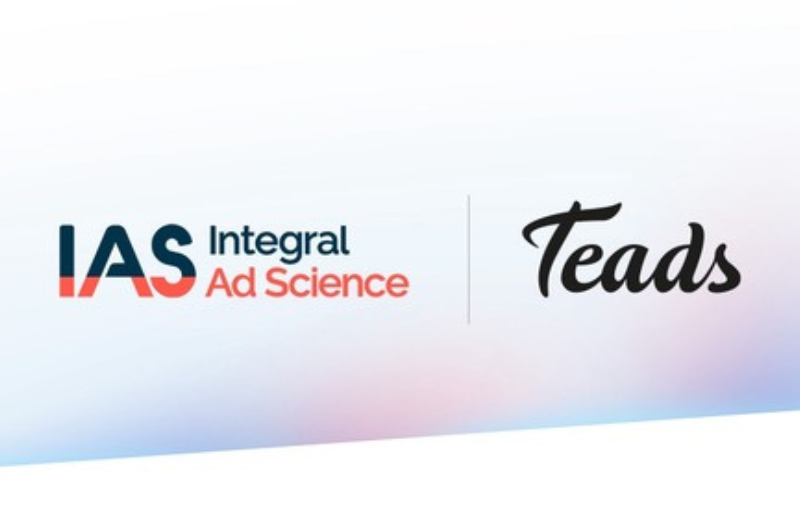Teads has announced its partnership with Integral Ad Science (IAS).
With this partnership, Teads aims to integrate IAS’s context control solutions to ensure their advertisers avoid content deemed unsuitable for their brand.
Advertisers will be able to use Teads’ Ad Manager to access IAS’s curated list of contextual segments and optimise their programmatic display and video ad campaigns on a pre-bid basis.
Furthermore, IAS aspires to provide brands with the confidence that their ads are being delivered in safe and suitable environments, with fully accurate, scalable coverage across display and video formats.
Barbara Dang, EMEA media and global fragrances communication director, Shiseido Company, said, “As a luxury brand, the quality of the media environments our ads are seen in is of critical importance to our digital advertising strategy. A key part of that is maintaining close control of the content our advertising is placed adjacent to, without compromising on the potential scale of reach. Being able to integrate IAS’s latest solution within the Teads platform enables us to achieve both of these goals, giving us ultimate peace of mind for brand suitability whilst still achieving outcomes for the business.”
Remi Cackel, chief product officer, Teads, said, “We’ve seen a sharp increase recently of marketers who are more conscious than ever of the sustainability of their media strategies. This partnership with IAS gives advertisers far greater control over their content adjacencies, layering third-party solutions on top of Teads’ quality inventory. By providing clients with the optimum level of brand suitability and the ability to serve campaigns at scale to reach more consumers, we are continuing to build trust and provide safe solutions for brands. This integration with IAS will increase support for quality journalism, providing a better outcome for all.”
Yannis Dosios, chief commercial officer, IAS, added, “We’re pleased to integrate our Context Control solution for avoidance within Teads’ platform, giving advertisers greater customisation of their campaigns by analysing the sentiment and emotion of a page. In a cookieless environment, it also helps drive monetisation for publishers by advertisers avoiding content that is only unsuitable on a pre-bid basis, while maximising scale compared to a keyword-only or brand safety approach.”

